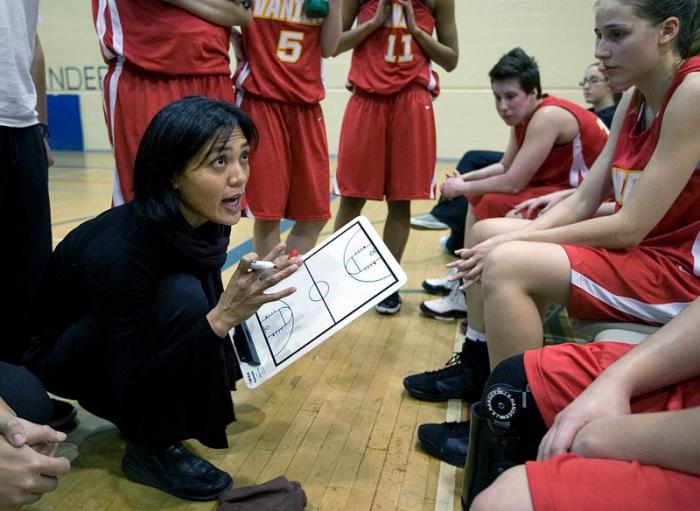
- •Topic 1. Coaching as a job
- •Text 1.1 coaching career
- •Text 1.2 science and practice of training
- •Text 1.3 coaching is my job
- •Self-study Work 1. Is Coaching an Art or a Science?
- •Grammar questions
- •Plan for rendering an article
- •1. The title of the article.
- •2. The author of the article; where and when the article was published.
- •3. The main idea of the article.
- •4. The contents of the article. Some facts, names, figures.
- •Topic 2. Systematic training approach
- •Text 2.1 the training language barrier
- •Text 2.2 different athletes, different needs
- •Text 2.3 a training approach that works
- •Self-study Work 2. 8 Sports Training Principles
- •Passive Voice (Пасивний стан)
- •Topic 3. Components of systematic training
- •Text 3.1 the paths that determine success
- •2. Read the text bellow. Do you share the author’s ideas?
- •Text 3.1 plan objectives
- •1. Read the text bellow. Do you share the author’s ideas?
- •Text 3.2 five training stages
- •Text 3.3 training cycles nature
- •1. Read the text bellow. Do you share the author’s ideas?
- •C ouch Culture: Only a Quarter of u.S. Youth Get Recommended Exercise
- •Self-study Work 3. Periodization of Training
- •Topic 4. Physiological guidelines for systematic training
- •Text 4.1 training stages of the year
- •2. Read the text bellow. Do you share the author’s ideas?
- •Text 4.2a stage I: base (aerobic buildup phase)
- •1. Read the text bellow. Do you share the author’s ideas?
- •Text 4.2b stage II. Intensity
- •1. Read the text bellow. Do you share the author’s ideas?
- •Text 4.2c Stage III: Peak (Taper)
- •1. Read the text bellow. Do you share the author’s ideas?
- •Text 4.2d Stage IV: Racing
- •1. Read the text bellow. Do you share the author’s ideas?
- •Text 4.2e Stage V: Restoration
- •1. Read the text bellow. Do you share the author’s ideas?
- •Specificity and Sports Fitness
- •A Study Shows That You Eat Way More When Watching Action Movies
- •America’s Teens Outscore Adults On Stress
- •6 Breathing Exercises to Relax in 10 Minutes or Less
- •N ews Flash… Harvard Students Cheat, Too
Self-study Work 1. Is Coaching an Art or a Science?
I. Read the text and answer the following questions:
1. Give a definition of coaching in sport and non-sport area.
2. Why do we refer to coaching as one-to-one process?
3. Are there any advantages of coaching? If yes, what are they?
4. Prove that coaching deals much with science.
5. In what way is science applied in coaching?
6. Prove that coaching has much similar with art.
7. Is coaching art or science for you? Explain.
8. Would you like to be a coach? Why/ Why not?
9. What qualities make coach a good one?
Coaching is a deliberate process utilizing focused conversations to create an environment for individual growth, purposeful action, and sustained improvement. It is designed to help people focus on what they need to do more and less of to achieve their goals.
I n
addition, coaching is a one-to-one process and a relationship between
an individual and a coach, usually via telephone, with specific
objectives and goals focused on developing potential, improving
relationships, and enhancing performance. Coaching uses a formal yet
personalized approach that integrates proven techniques for change
with behavioural knowledge and hands-on practice. Coaching breaks
down barriers to help achieve greater levels of accomplishment. It is
a process of self-leadership that enables people to gain clarity
about who they are, what they are doing, why they are doing it, and
where they want to go.
n
addition, coaching is a one-to-one process and a relationship between
an individual and a coach, usually via telephone, with specific
objectives and goals focused on developing potential, improving
relationships, and enhancing performance. Coaching uses a formal yet
personalized approach that integrates proven techniques for change
with behavioural knowledge and hands-on practice. Coaching breaks
down barriers to help achieve greater levels of accomplishment. It is
a process of self-leadership that enables people to gain clarity
about who they are, what they are doing, why they are doing it, and
where they want to go.
Science. To support the coach there is a wealth of scientific information based on research conducted with athletes. Information is available to support the coach and athlete in all areas of training and development including nutrition, biomechanics, psychology, physiology & medicine. There are a number of scientific methods to measure and analyse the athlete's performance e.g. computer aided analysis of VO2 max, lactate levels, running technique etc.
Art. The art of coaching comes when the coach has to analyse the scientific data and convert it into coaching and training programs to help develop the athlete. This analysis process relies heavily on the coach's experience and knowledge of the event/sport and the athlete concerned. By understanding the science, which is the foundation of training, a well designed training program can be developed that will help an athlete reach their full potential.
So is coaching the art of understanding the science and then applying it?
II. Find the equivalents in your native language to the following words and word-combinations:
individual growth
deliberate process
more and less
via telephone
improving relationships
enhancing performance
integrates proven techniques
breaks down barriers
to gain clarity
nutrition, biomechanics, psychology
scientific methods
VO2 max
lactate levels
concerned
quality of life
experience and knowledge
applying
III. Think of advantages and disadvantages of coaching career. Do it in written form
